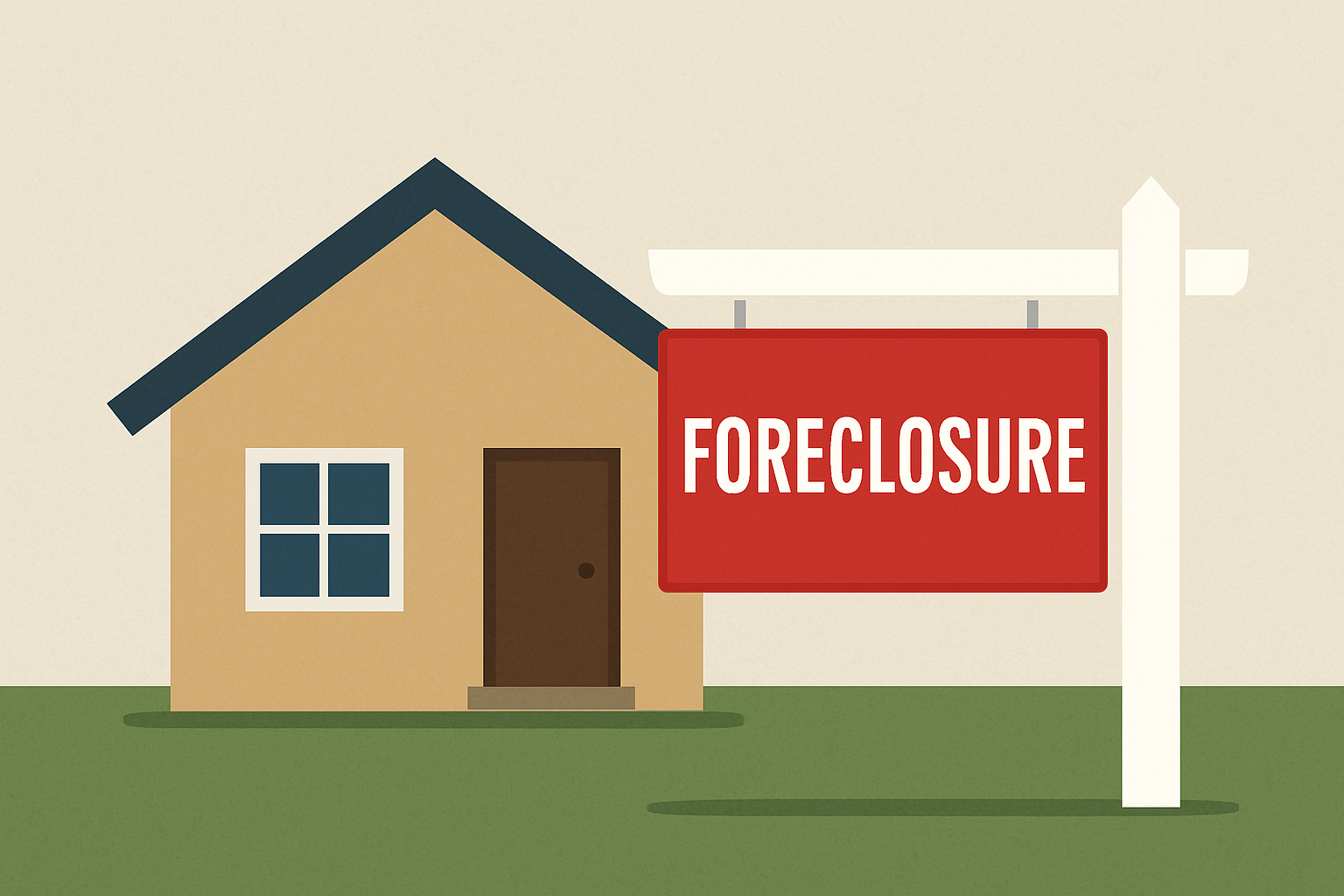Facing Foreclosure? Know Your Rights and Options in Florida

Facing foreclosure in Florida can feel overwhelming, but once you know your rights and understand the process, you’ll find you’re legally empowered at every stage. You have the right to notice, defense, court participation, and reinstatement. Meanwhile, lenders are generally incentivized to avoid foreclosure through various loss-mitigation tools. HANDS of Central Florida offers foreclosure prevention counseling and can often help you work out a payment plan with your mortgage company.
We hope you’ll reach out to us, but in the meantime we’ve put together some helpful information below to get you started on the path of foreclosure prevention and financial stability.
Understanding the Foreclosure Process in Florida
Florida is a judicial foreclosure state, meaning lenders must go to court to reclaim the property. Usually you begin to receive notices after missing three to six payments, but once you’ve been delinquent for around 120 days the lender may issue a Notice of Default and Accelerated Breach Letter, giving you a chance to cure your default before filing a lawsuit.
Once the lender files the lawsuit and serves you with a Summons and Complaint, you have 20 days to file an answer with the court, or risk a default judgment and eventual foreclosure sale.
If after defenses, summary judgments, or a trial the court rules in the lender’s favor, it issues a foreclosure judgment and schedules a sale, usually 20 to 90 days later. A Lis Pendens will be recorded to alert legal interest in the property.
Your Fundamental Rights When Facing Foreclosure
Notice and Opportunity to Cure
You’re entitled to receive written notice and a breach letter before foreclosure can begin. A federal rule prevents foreclosures from starting until about 120 days past due, ensuring time to apply for help. It’s important to take action early in this process.
Right to Respond and Defend
Once served, you have 20 days to file an Answer addressing each allegation. If you don’t respond, you forfeit the chance to contest the foreclosure.
The Legal Standing of the Lender
The lender must prove they own the loan, presenting the original note or affidavit showing chain of ownership. If they can’t, the foreclosure may be dismissed.
Right to Reinstatement (Pre-Sale)
You can reinstate your loan by paying all past-due amounts, late fees, and costs up until the sale date. Florida law emphasizes your right to cure defaults until the sale.
Right of Redemption
Although Florida does not grant post-sale redemption rights like some states, you retain the right to redeem and reinstate BEFORE the foreclosure sale occurs.
Mediation
While a statewide program ended in 2011, some courts still offer case-by-case mediation, especially in counties that prioritize loss mitigation.
Surplus Funds
If the foreclosure sale brings more money than you owe, you can file a claim for the surplus proceeds through the Clerk of Court.
Practical Options to Avoid Foreclosure
Communicate Early with Mortgage Servicer
Contact your lender as soon as payments become difficult. Most servicers aim to avoid costly foreclosures and will discuss loss mitigation options.
Loss Mitigation Tools
Loss mitigation can include:
- Forbearance: a way to temporarily reduce or suspend payments.
- Repayment Plan: a way to gradually clear missed payments by adding them to your regular installments.
- Loan Modification: This can mean adjusting the mortgage terms, such as interest rate, principal, or maturity date, to lower your monthly payments.
- Principal Reduction: in rare cases, lenders forgive part of the principal as permanent relief.
Short Sale or Short Payoff
A short sale is when you sell your home for less than owed, with the lender agreeing to the shortfall. You can also negotiate a short payoff if you can handle a large lump sum.
Deed-in-Lieu of Foreclosure
A deed-in-lieu foreclosure is when you voluntarily transfer home ownership to the lender. This avoids public foreclosure and often reduces credit fallout. It’s typically only considered after attempting a sale and if no junior liens exist.
Bankruptcy
Filing for bankruptcy can stay foreclosure proceedings temporarily, especially Chapter 13 which allows house-saving repayment plans. It impacts your credit and shouldn’t be undertaken lightly.
Defenses to Foreclosure
When defending a foreclosure, look out for:
- Improper or insufficient notice, usually violations in timelines or delivery methods.
- Errors in loan handling, including misapplied payments or inflated fees.
- The Lender lacks standing due to missing original notes or assignments.
- Servicer rule breaches, e.g., violating Real Estate Settlement Procedures Act or Consumer Financial Protection Bureau rules.
- Overreaching deficiency claims. Florida allows lenders to seek unpaid balances after sale; you can challenge calculation errors.
Florida’s Homestead Exemption
Florida’s constitutional homestead exemption protects an unlimited-value primary residence from forced sale by general creditors, but not from mortgage foreclosure. Still, it’s crucial for broader debt protection.
Steps to Take Immediately
- Review your loan documents and payment history to identify amounts due and any errors.
- Contact your servicer to request loss mitigation before default deepens.
- Contact HANDS, a HUD-approved Housing Counselor Agency (888‑995‑HOPE) for free guidance. If you are in Central Florida please reach out to us! Orlando: 407-447-5686 and Lakeland: 863-682-1025.
- Meet court deadlines. You must respond to the lawsuit within 20 days to preserve defenses.
- Explore alternatives like loan modifications, short sale, deed‑in‑lieu, or bankruptcy.
- Claim surplus after the sale, contact Clerk’s office within 10 days if there’s excess equity.
In Summary
Be proactive! Contact your servicer, respond to court filings, get counseling, and explore every option before the sale is finalized. With careful action and the right assistance, many Floridians successfully avoid losing their homes.
